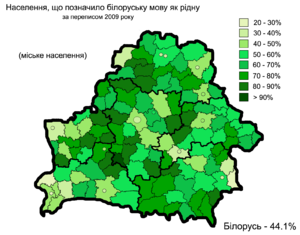
This morning on Facebook someone cleverly asked the question whether one should first master one’s native language before learning another. The person asking the question later in the thread comes out in favour of the answer no, one does not have to first master one’s native language before starting another. Quite right too, but I was negatively surprised to see a number of people siding with the proposition. Do they think that they can even measure what it is to “master” one’s native tongue?
I think it is even actually impossible to master one’s own language without learning another. It is impossible to be properly analytic about one’s own native language without stepping out of it. A common denominator among people who use their native language particularly poorly is that they have never undertaken serious study of a second one.
I had a friend from Australia once who was completely ignorant of whether he was using a word in English as a noun or an adjective or an adverb – in English words don’t necessarily change their form to show you what they are. As a result his reading comprehension was a hoot, he made incorrect inferences the whole time from what people wrote to him. You could see that his whole world view was hemmed in by the fact that he didn’t even have a proper grasp of how his tool for thought, ie language, actually worked. It was not until he started learning other languages that his eyes began to open. This is before we even get to the deepening of thought and the opening of the mind that comes ones we are able to understand word origins better, or start to think in the other language or begin experiencing the world through the linguistic apparatus of another people.
I have seen sometimes in the youtube comments for videos made by polyglots whose first language still contains errors that they should first improve their own language and then go on to learn other languages. In particular I saw this on videos made by Moses, whose English has a footprint on it of the way people around him through his life have spoken it. Therefore his English isn’t a kind of English which is high-style or standard pronunciation. People show their prejudice by assuming that such utterances can only be made by someone who is poorly linguistically educated. Is it necessary, though, for someone like Moses to diss his own culture and only use another class of English as his English in order to be qualified to learn or speak further languages? I don’t think so. I think that what they call “ebonics” has a certain beauty of its own and if someone naturally speaks that, then they shoudl do so with dignity and pride. It will not stop them from reading and writing English of any degree of prim-and-properness/primness and propriety/primopropriationability or whatever you wanna call it.
Related articles
- Not Saving Enough? Your Native Language May Be to Blame (dailyfinance.com)
- My Language is Harder than Yours (fencingwithkierkegaard.wordpress.com)
- Christians Enjoyed 2012’s Popular Verses in Their Native Language with French English Bible (prweb.com)
- Romanian Bible Meets Need for New Translations of Scripture (prweb.com)

This post made me think. I don’t think one ever masters one’s own language–especially since language changes all the time. I have to learn the new slang my middle school kids come home with before I “master” my language.
I’ve often heard the question of whether one should master one foreign language before learning another. Putting preconditions on starting learning something sounds like an excuse. Learning anything can start today.
Finally, the comments about Moses upset me. Saying he hasn’t “mastered” English is racist. You rightly point out that he has mastered his own dialect, even if it isn’t the standard, high-class dialect. Those who criticize want him to be bilingual before he starts other languages: his native dialect and “standard” dialect. I want him to keep working on all his languages at once! No excuses!
Precisely. Of course he has “mastered” English, the standard form also, he simply chooses to speak his dialect and there is no reason whatsoever why he should not. And it is very possibly racist for someone to dismiss a dialect that might be associated with African Americans, but that really depends on what their view is on other dialects, those associated maybe more with English speakers of their own racial group. If someone applies the view across the board then it might not be racist, but in any event it isn’t an intelligent view. Other than on Moses’ videos, where I’ve seen it the most in comments, I have seen it in videos by other people.
If you take Richard Simcott, for example, he chooses to speak in his Northern English dialect, but he’s very good at accents and he could probably deliver in RP, but why should he? There’s nothing wrong with a Northern accent.